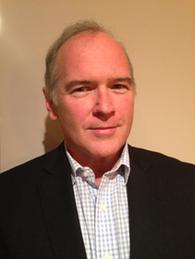 |
|
| Jim Dwyer | |
Jim Dwyer, a Pulitzer Prize-winning reporter, columnist and author "whose stylish journalism captured the human dramas of New York City for readers of New York Newsday, the Daily News and the New York Times for nearly four decades," died October 8, the Times reported. He was 63. Dwyer won the 1995 Pulitzer for commentary for columns in New York Newsday, and was part of a team at the newspaper that won the 1992 Pulitzer for spot news reporting for coverage of a subway derailment in Manhattan, the Times wrote, adding that "colleagues called Dwyer, who worked for six metropolitan dailies and wrote or co-wrote six books a fast, accurate and prolific writer who crusaded against injustice."
His books include More Awesome Than Money: Four Boys, Three Years, and a Chronicle of Ideals and Ambition in Silicon Valley (2015); False Conviction: Innocence, Science and Guilt (2014); Actual Innocence: Five Days to Execution and Other Dispatches from the Wrongly Convicted (2000, with Peter Neufeld & Barry Scheck); 102 Minutes: The Untold Story of the Fight to Survive Inside the Twin Towers (2005, with Kevin Flynn); Two Seconds Under the World (1994, with Dee Murphy, David Kocieniewski & Peg Tyre); and Subway Lives: 24 Hours in the Life of the New York Subways (1991).
Since 2007, Dwyer had written the Times's "About New York" column, succeeding a distinguished line of writers, including Meyer Berger, David Gonzalez and Dan Barry, the Times noted. In a 2016 interview with the Columbia Journalism Review, Dwyer was asked if he had the best job in journalism. He replied: "I believe I do. A big part of my job is to talk with brilliant scientists, great artists, the amazing people you meet just walking around the streets of New York. What could be more fun than that?"
In his last Times column, on May 26, he linked the Covid-19 pandemic to his family's history and the catastrophic 1918 flu: "In times to come, when we are all gone, people not yet born will walk in the sunshine of their own days because of what women and men did at this hour to feed the sick, to heal and comfort."

